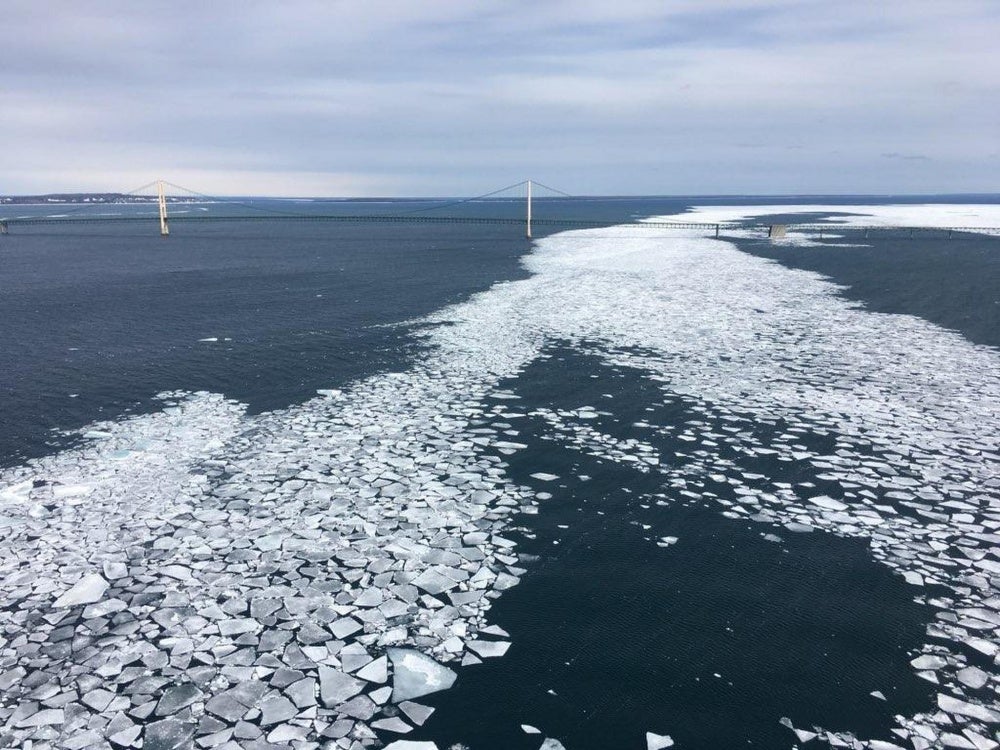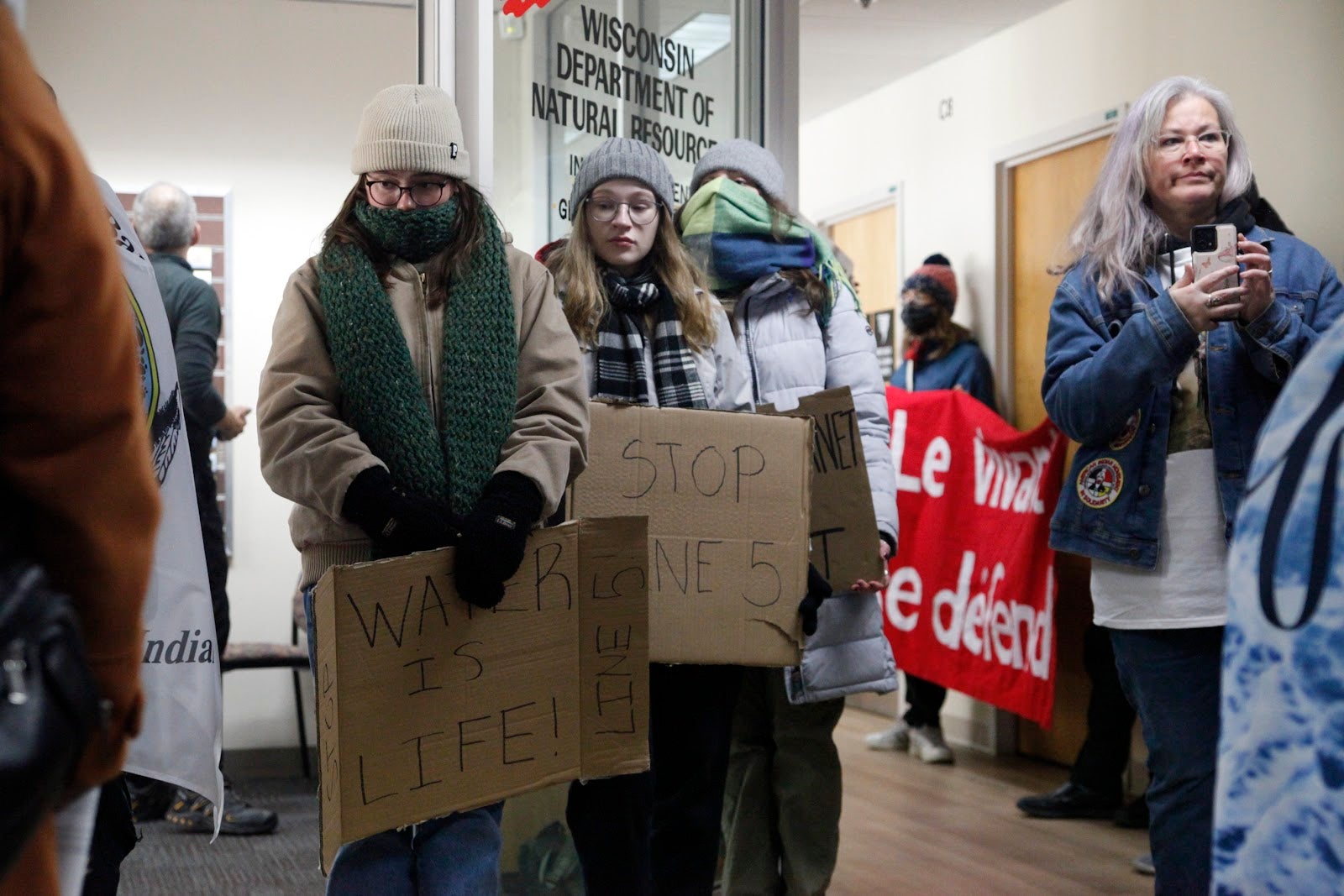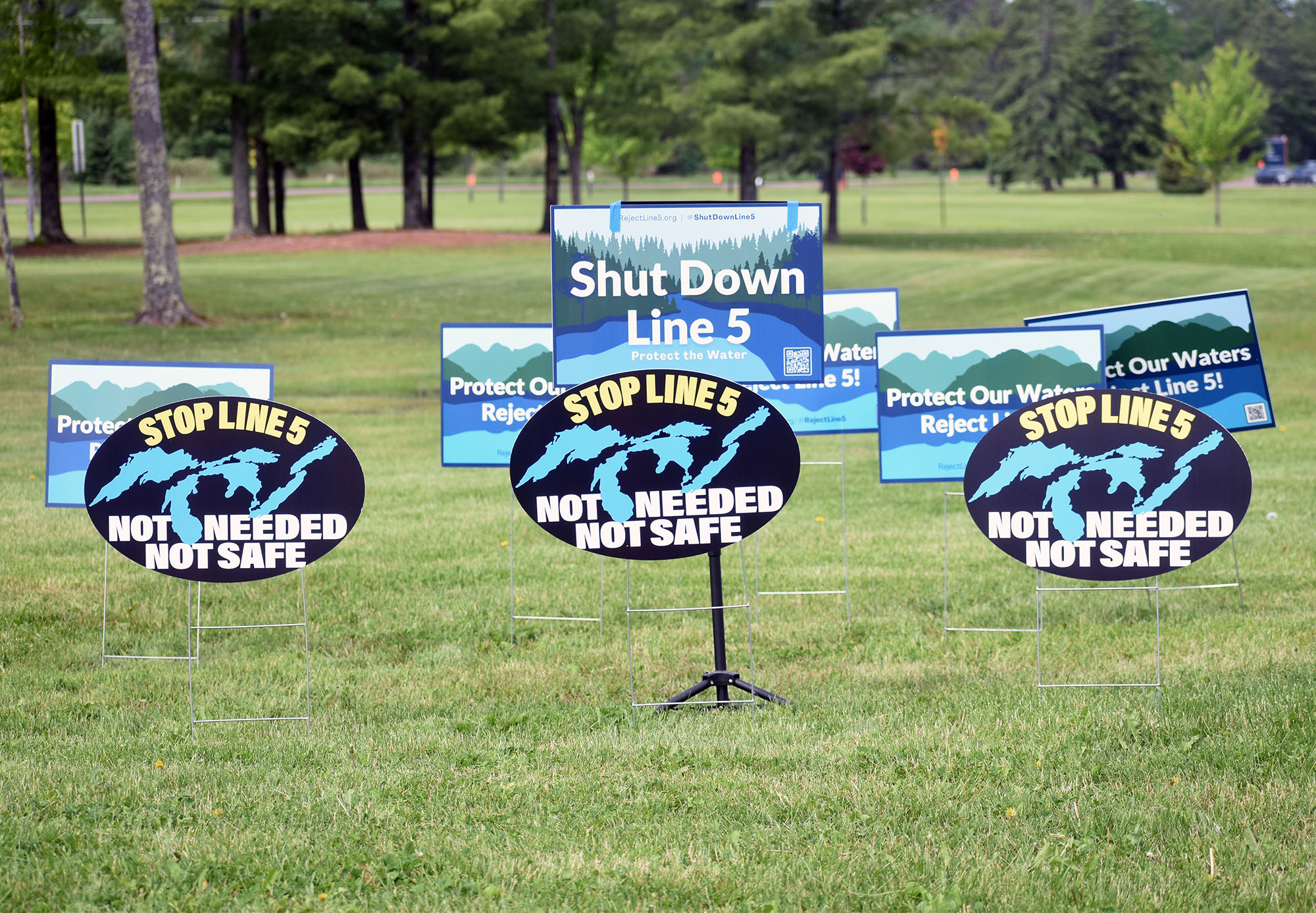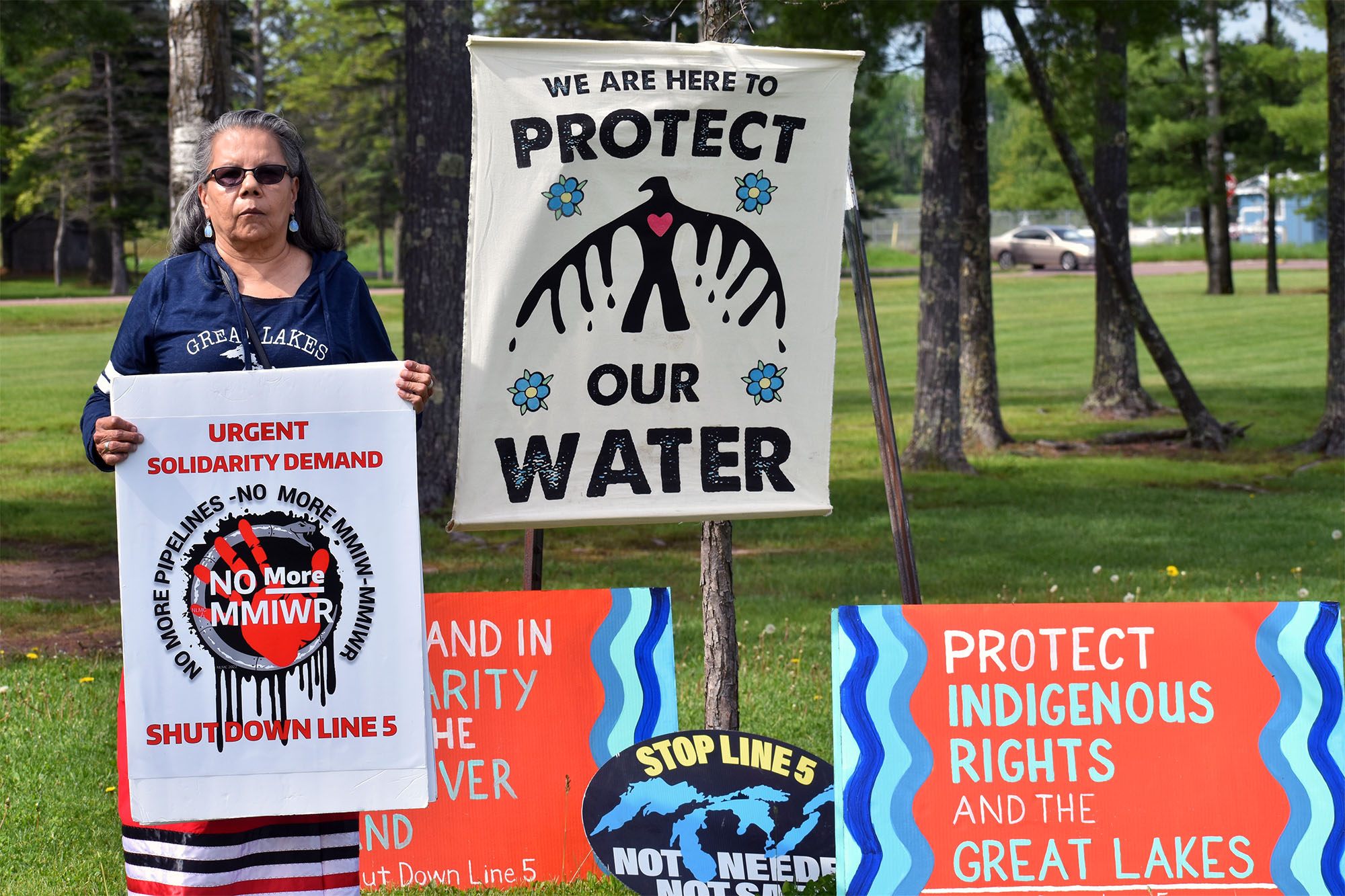State environmental regulators released a final environmental impact statement Friday on a Canadian energy firm’s plans to reroute an oil and gas pipeline around a northern Wisconsin tribe’s reservation.
In 2019, the Bad River Band of Lake Superior Chippewa sued Canadian firm Enbridge in federal court to shut down and remove the 70-year-old Line 5 on tribal lands. In response, the company proposed a $450 million plan rerouting the pipeline around the tribe’s reservation.
Line 5 runs 645 miles from Superior to Sarnia, Ontario. It’s designed to carry up to 540,000 barrels of oil and natural gas liquids daily.
Stay informed on the latest news
Sign up for WPR’s email newsletter.
In the proposed reroute, a new stretch of 30-inch pipe would run 41 miles around the reservation in Ashland and Iron counties. State and federal regulators say the project would cross 186 waterways and temporarily disturb 101 acres of wetlands.
The 898-page document released Friday relied on 10,000 pages of materials that reflects hours of testimony and more than 32,000 comments submitted to the agency, according to Greg Pils, director of the DNR Bureau of Environmental Analysis and Sustainability.
“This is a critical step in making a permitting decision,” Pils said. “The (environmental impact statement) does not compel a decision, but it is there to inform our decision-making.”
Enbridge has applied for multiple permits with the agency. Pils said the agency doesn’t have a timeline for issuing decisions on whether to approve or deny those applications.
Bad River Tribal Chairman Robert Blanchard declined to comment Friday. Earthjustice attorney Stefanie Tsosie, who is representing the tribe in its legal battle, said she and others are still reviewing the environmental impact statement, or EIS.
“They can put as much paper as they want on this project, but we still have serious concerns about the impact that this project will have on the Bad River Band reservation, on the people, on the cultural resources and on the watershed,” Tsosie said.
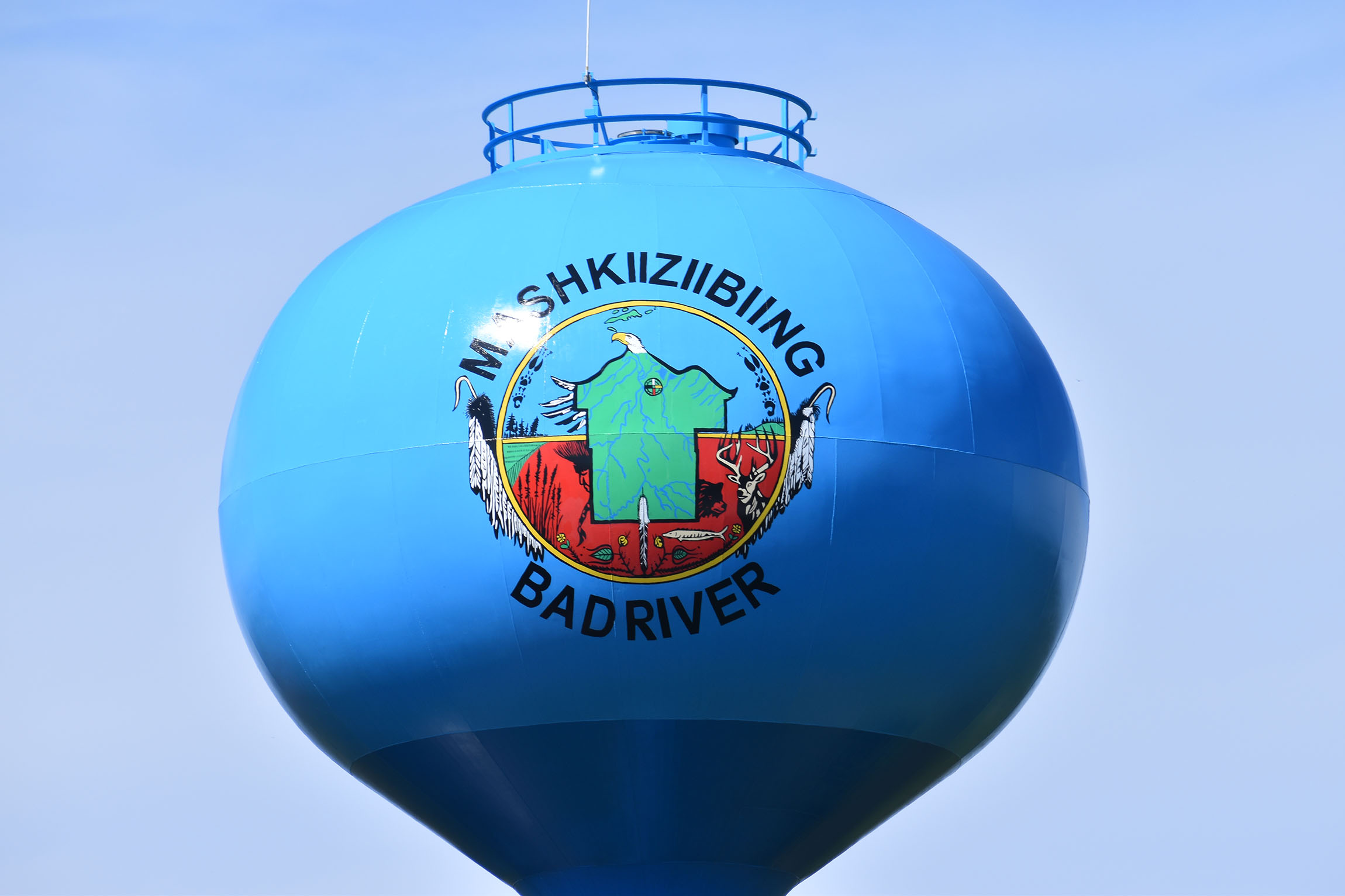
In a statement, Enbridge spokesperson Juli Kellner said the document’s release is an important step in the permitting process for the project.
“The project has been designed to avoid and minimize temporary construction impacts, and we believe the planned route is the best alternative,” Kellner wrote. “The Wisconsin DNR has thoroughly evaluated the environmental impacts of the proposed project.”
Enbridge and the Bad River tribe have been at odds for more than a decade after the company’s easements expired on a dozen tracts of land in 2013.
Last year, U.S. District Judge William Conley ordered the company to pay $5.15 million for trespassing on the Bad River tribe’s lands where its pipeline easements expired. He also ordered the company to shut down or reroute Line 5 where it’s illegally operating by June of 2026. Both the tribe and Enbridge are appealing that decision in the Seventh Circuit Court of Appeals, and a ruling is still pending.
Clean Wisconsin expressed concerns that regulators are understating the project’s impacts to wetlands. The environmental group said the project could create secondary impacts to a much larger expanse of wetlands beyond the roughly 101 acres directly impacted, adding claims that almost all impacts will be temporary are inaccurate.
Evan Feinauer, staff attorney for Clean Wisconsin, noted groups have questioned whether the agency fully analyzed the impacts of the project’s construction and continued operation of Line 5.
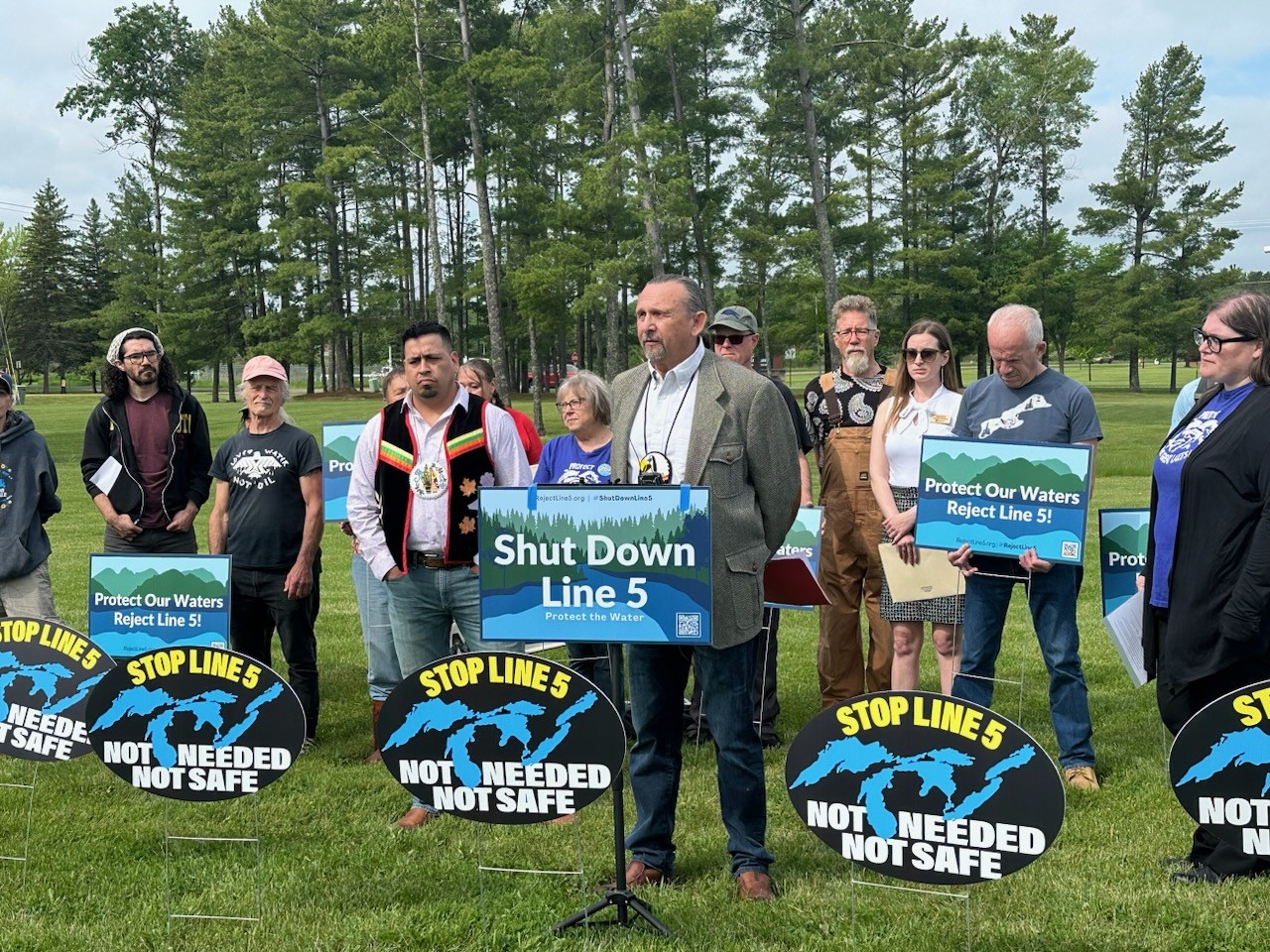
“Obviously, everybody is worried about an oil or gas spill and how catastrophic that could be for the environment because that’s going to go wherever water goes,” Feinauer told WPR. “That includes the entire watershed. That includes Lake Superior.”
Tony Wilkin Gibart, executive director of Midwest Environmental Advocates, said in a statement that the environmental law center supports those who have urged the DNR to reject permits for the project. He questioned whether the DNR complied with the Wisconsin Environmental Policy Act, highlighting the agency hasn’t held a hearing on the project in four years.
“If we find that (the final EIS) falls short of what the law requires, we are prepared to take legal action to stop this dangerous and destructive pipeline project,” Wilkin Gibart said.
Supporters of the Line 5 reroute that include labor unions, business groups, and Republican lawmakers have highlighted the hundreds of jobs that would be created during construction. Emily Pritzkow, executive director of the Wisconsin Building Trades Council, said in a statement that the project is a win for workers and Wisconsin families.
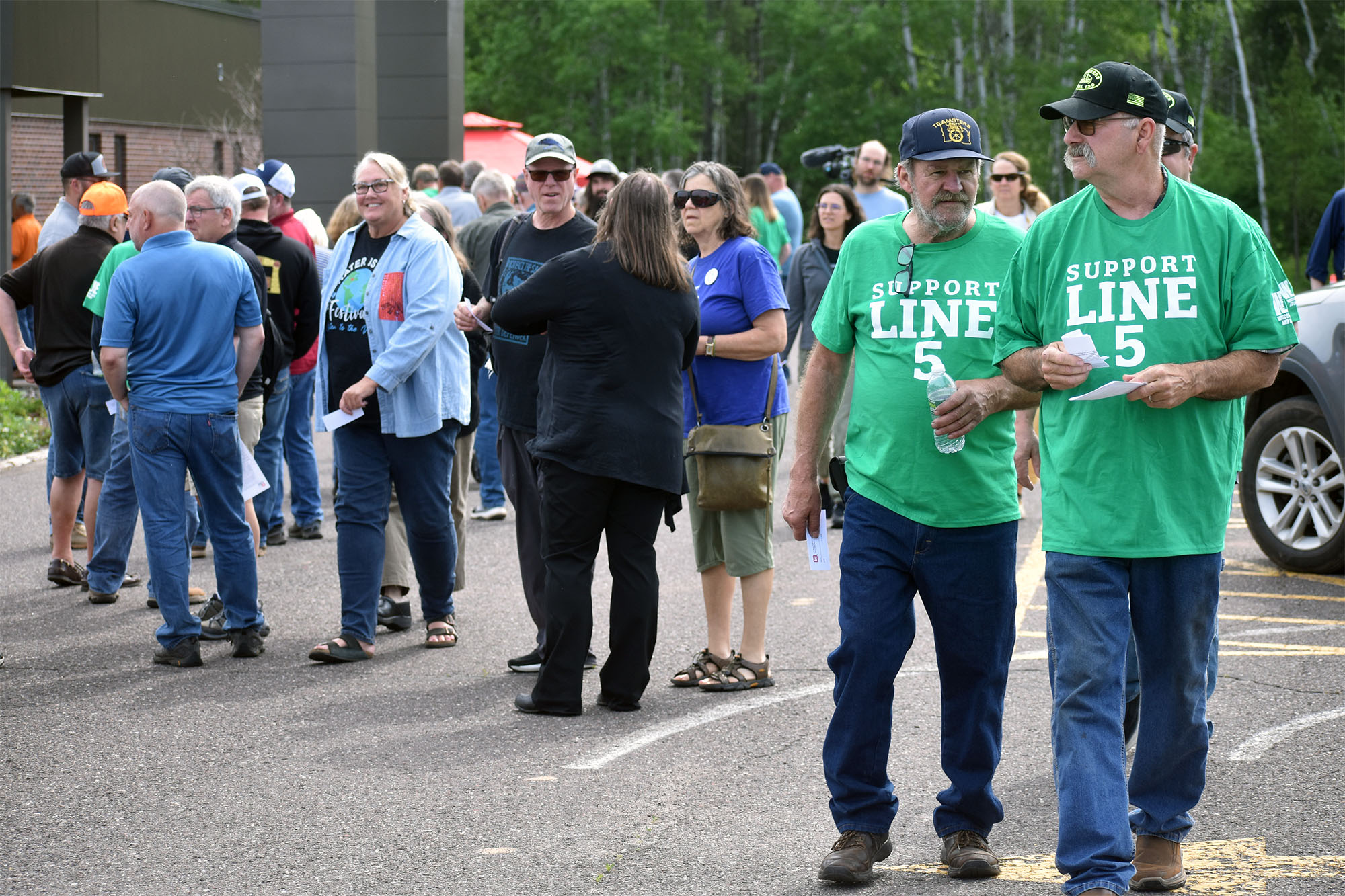
“Not only will the project create 700 union construction jobs, but it will ensure the energy our state’s families and economy need to survive continues to flow,” Pritzkow said.
Last week, more than 150,000 people submitted comments to the U.S. Army Corps of Engineers in opposition to the project compared to more than 14,000 people who signed a petition in favor of the Line 5 reroute.
The final EIS states the project is estimated to generate $148 million in labor expenses.
Line 5 has had around 30 releases on land, spilling about 1 million gallons of oil. Enbridge is also responsible for the nation’s largest inland oil spills, including a 2010 spill that released more than 1.2 million gallons of oil into the Kalamazoo River. The company has said it’s spent billions of dollars upgrading technology and safety protocols since the 2010 spill.
If permits are granted, construction would take about a year to complete.
Wisconsin Public Radio, © Copyright 2025, Board of Regents of the University of Wisconsin System and Wisconsin Educational Communications Board.

